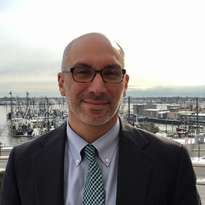Sunday, April 14, 2019 from 8:30 a.m. - 9:45 a.m. PDT
Location: 2004
LEARNING OUTCOMES
- Understand the concept of civic capacity and why it is important to a community.
- Identify the changes they can make to increase their civic capacity to create change in their jurisdiction.
- Be equipped to take the first steps toward implementing policies that foster civic capacity.
MORE SESSION DETAILS
Strong civic infrastructure is one of the leading indicators of whether a city in decline can successfully reverse its trajectory. Civic infrastructure is closely tied to the concept of civic capacity — meaning institutions, agencies, and individuals are coordinated and able to effectively respond to crisis and seize opportunity.
Research has found, however, that grandiose and unrealistic plans do little to move a city in the right direction, especially in smaller cities with limited resources and weak civic infrastructure. Instead, small cities are better off taking strategic, incremental steps towards a shared vision for the city’s future that is grounded in a realistic assessment of the present.
This process of building capacity is similar to building muscle — it is also a long-term process that requires ongoing work and maintenance, but once a community has a certain amount, it can take on heavier lifts. As communities achieve incremental “wins,” they are better situated to take on larger, more catalytic efforts. This panel looks at concrete steps two smaller cities have taken to increase the civic capacity “muscle” in their city through a process of incremental change.
Session Speakers

Derek Santos
Speaker
City of New Bedford, Massachusetts
New Bedford, MA

George W. McCarthy
Speaker
The Ford Foundation
Cambridge, MA

John Collier
Speaker
Greater Ohio Policy Center
Columbus, OH

Michael H. Ionna, AICP
Organizer and Speaker
City of Solon - Planning Dept
Cleveland Heights, OH
Activity ID: NPC198019

